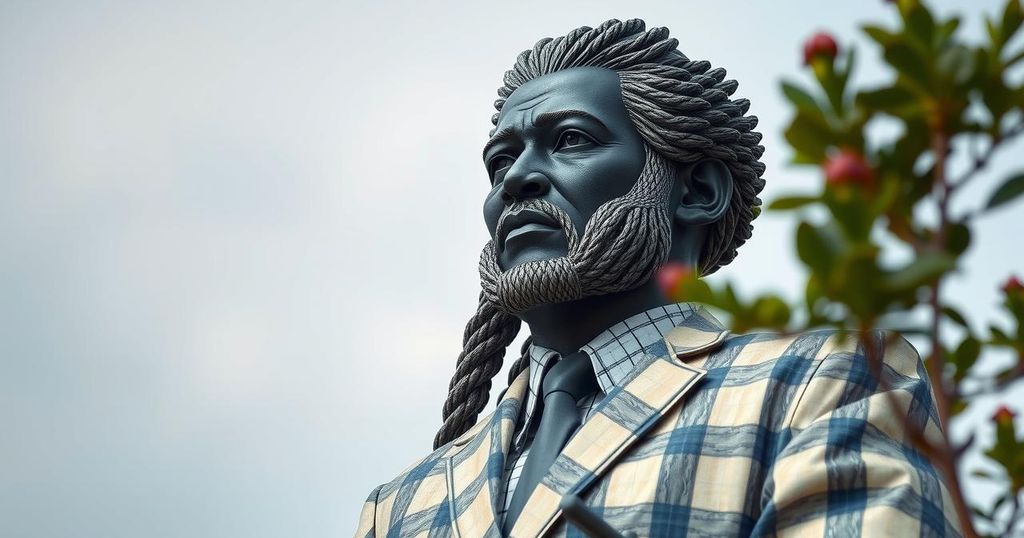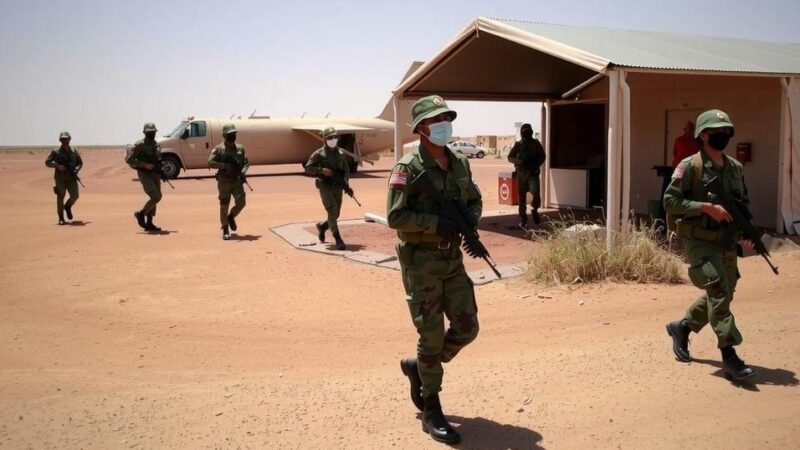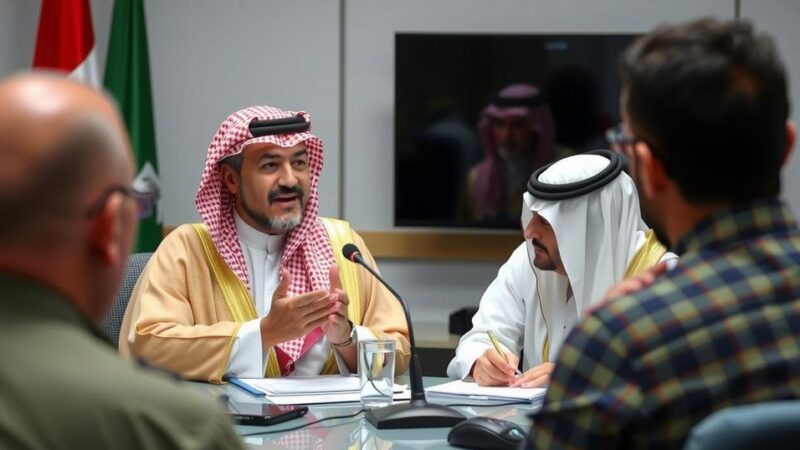The Central African Republic has unveiled a statue of Yevgeny Prigozhin, founder of the Wagner Group, indicating strong ties with Russia and appreciation for military support in restoring stability. The nation, rich in natural resources but struggling with poverty, has faced prolonged civil conflict. President Touadéra defends the continued presence of Russian military forces, emphasizing their role in securing peace and enhancing security in the region. Concerns arise over the implications of such partnerships on national sovereignty and development.
The Central African Republic (CAR) has reaffirmed its alliance with Russia by inaugurating a statue honoring Yevgeny Prigozhin, the deceased founder of the Wagner Group, and his associate Dmitriy Utkin in Bangui. This gesture symbolizes the CAR administration’s appreciation for the security assistance provided by Russia over recent years. Since the onset of civil conflict, Russian military involvement has aimed to stabilize the nation, facilitating access to its abundant natural resources, including diamonds and gold.
Though the CAR is endowed with a wealth of resources, it remains one of the world’s poorest countries, with extreme poverty impacting its 5.4 million citizens. The nation’s history has been marred by political turmoil and repeated civil wars. The introduction of Russian military forces in 2017 was pivotal in countering armed group activities and restoring some semblance of order. The monument to Prigozhin and Utkin, who perished in a plane crash in August 2023, reflects the ongoing partnership between CAR and Russian interests in the region.
President Faustin-Archange Touadéra has been a vocal proponent of continued Russian military presence, crediting it with improved security and stability. In a December 2023 interview, he stated, “It was said that 80% of the territory was occupied by armed groups. Today, thanks to Russia’s military cooperation, these figures are completely reversed.” His administration actively engages with Moscow to bolster the CAR’s economic infrastructure along with security arrangements.
Despite this, the CAR faces significant challenges, including low Human Development Index rankings and fragile governance that necessitates ongoing military and developmental assistance. As the CAR continues to navigate complex geopolitical relationships, the influence of Russian contracts may inspire similar alliances in other African nations grappling with instability.
The Wagner Group’s recent rebranding as Corps Africa indicates a strategic pivot, yet it preserves its foundational operations in CAR. This evolving relationship with Central African resources raises concerns over sustainability and national autonomy as the country seeks to balance international partnership and self-determination.
As CAR concertedly works to leverage its resources for security arrangements, regional leaders advocate for self-sufficiency in addressing internal conflicts, urging for the development of indigenous military capabilities that do not undermine national sovereignty. This ongoing dialogue highlights the delicate interplay between external support and internal development strategies within the Central African context.
The Central African Republic (CAR) has endured prolonged civil strife and instability, exacerbated by ethnic conflicts and competition for resources. Following its independence from France in 1960 and a series of autocratic regimes, democratic elections emerged, yet political turbulence persisted. In 2017, a military agreement with Russia initiated an influx of military support from the Wagner Group, facilitating attempts to regain stability in a country rich in natural resources but marked by extreme poverty. The recent construction of a statue honoring Yevgeny Prigozhin reinforces CAR’s commitment to this alliance, highlighting the continuing influence of foreign military assistance amidst regional insecurity.
In conclusion, the establishment of a statue honoring Yevgeny Prigozhin in the Central African Republic signifies a deepening relationship between CAR and Russia, emphasizing military cooperation in restoring stability against armed groups. While this partnership offers the prospect of improved security, it concurrently raises questions about the nation’s economic autonomy and long-term development. As CAR navigates its complex geopolitical landscape, the challenge remains to balance external support with sustainable internal progress.
Original Source: moderndiplomacy.eu







